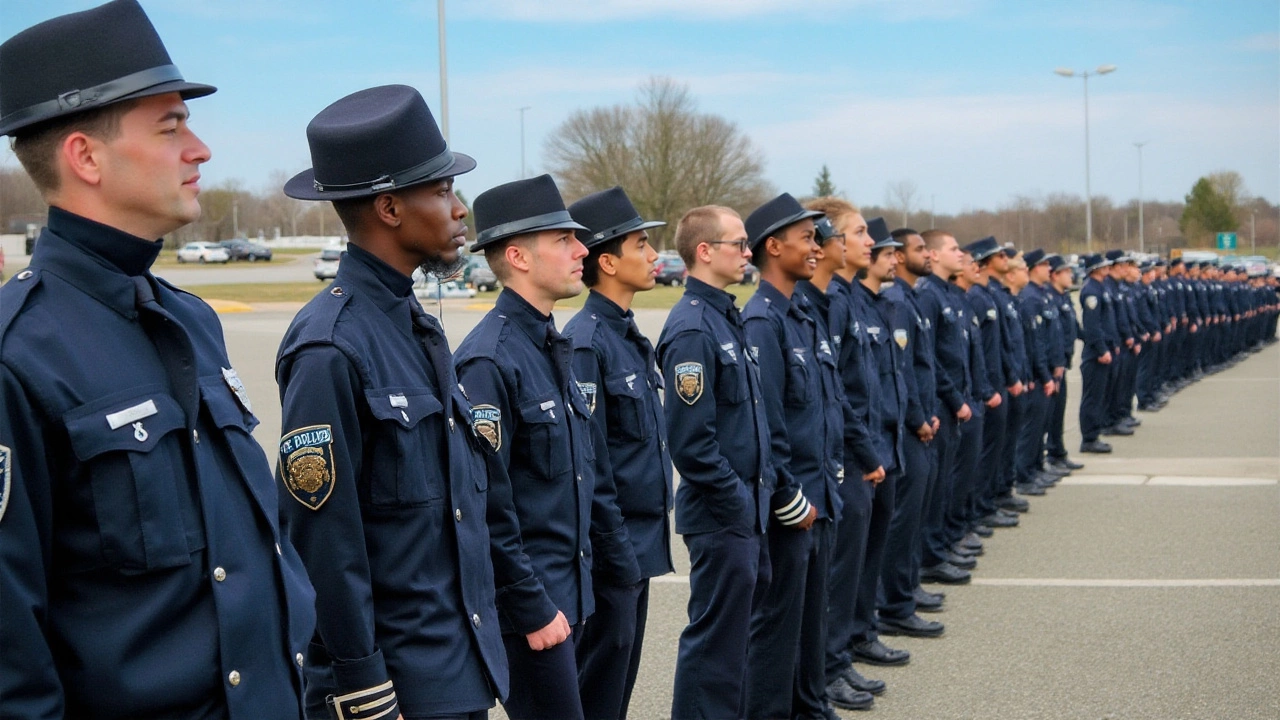Police Academy Training: What You Need to Know Before You Start
If you’re thinking about a career in policing, the first step is the police academy. It’s where you turn ambition into real skills, learn the ropes of law enforcement, and get a taste of the daily grind. In this guide we’ll break down the basics – from how long the course runs, what you’ll study, to the pay you can expect and the little extras that make the experience smoother.
How Long Is the Academy and What Does It Cover?
Most UK police academies run for 12 to 16 weeks of intensive training. The schedule is packed: morning fitness sessions, afternoon classroom lessons, and evening scenario drills. You’ll study criminal law, road safety, public order, and basic investigations. Physical fitness is a big part, with regular runs, obstacle courses and self‑defence drills. By the end of the programme you should be able to handle traffic stops, write clear reports and stay calm in a crowd.
After the core training, many forces add a short probation period on the beat – usually three months – where you work alongside an experienced officer. This on‑the‑job phase lets you apply what you learned in a real setting while still getting support.
Getting In: Entry Requirements and Application Tips
To join the academy you need a clean criminal record, the right age (usually 18‑30), and a decent level of fitness. Most forces ask for at least five GCSEs (or equivalents) with English and maths at grade C or above. A good interview performance and a solid situational judgement test are also part of the mix.
Tip: start your fitness training early. Even a few jogs a week can boost your stamina and confidence. When you fill out the application, be honest about your motivations – forces look for people who want to serve the community, not just land a job.
Pay, Benefits and What Your Salary Looks Like
Yes, you get paid while you’re at the academy. New recruits in England typically earn between £22,000 and £24,000 per year, pro‑rated for the training period. That translates to roughly £1,800‑£1,950 a month before tax. On top of the base pay, most forces add a training allowance that covers meals and transport.
Benefits are worth mentioning: you’ll receive a pension scheme after a few years, paid holidays, and access to health and wellness programs. Some forces also offer housing assistance if you have to relocate for training.
Budgeting Tips for Academy Life
Even with a salary, budgeting matters. Rent is usually the biggest expense, so look for shared accommodation or student‑type housing near the training centre. Keep food costs low by cooking simple meals – a pasta dish or rice and beans can stretch far. Use public transport passes; they’re cheaper than daily tickets.
Take advantage of the free meals that many academies provide during training days. It saves both money and time, leaving you more energy for the drills.
How to Succeed and Stay Motivated
Success in the academy isn’t just about raw strength. Stay organized – keep a notebook for legal statutes, watch videos on de‑escalation techniques, and review them after each class. Form study groups with fellow recruits; teaching each other reinforces knowledge.
Don’t ignore the mental side. The training can be stressful, so find a quick way to unwind – a short walk, a chat with a teammate, or a few minutes of music. When you feel the pressure building, remember why you started. A career in policing offers a chance to protect your community and grow as a professional.
By the end of the academy you’ll have a solid foundation, a paycheck, and a clear path to the next stage of your policing journey. Ready to take the first step? Start prepping your fitness, gather your paperwork, and apply to your local force today.




